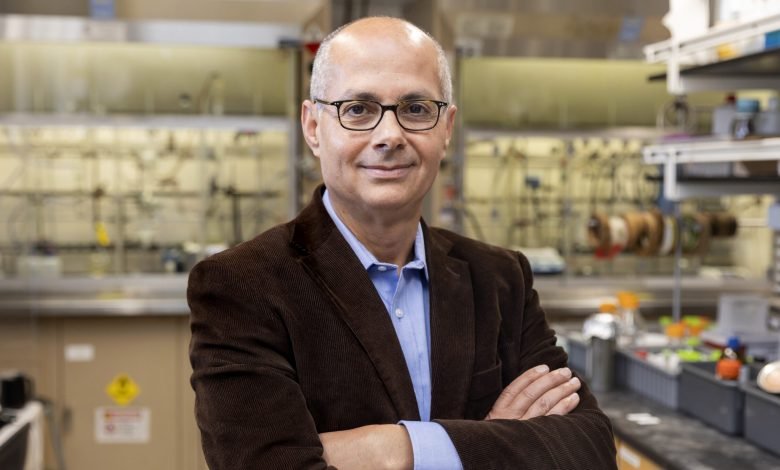
AFP- Three scientists on Wednesday won the Nobel Prize in Chemistry for developing metal-organic frameworks (MOFs) that can be used to capture carbon dioxide and harvest water from desert air, among other things.
Japan’s Susumu Kitagawa, UK-born Richard Robson and American-Jordanian Omar Yaghi were honoured for their groundbreaking discoveries dating from the late 1980s to the early 2000s.
“These constructions, metal-organic frameworks, can be used to harvest water from desert air, capture carbon dioxide, store toxic gases or catalyse chemical reactions,” the jury said.
Commentators have for years suggested Yaghi, 60, was a strong contender for the prize, with Kitagawa, 74, also often floated alongside.
“Imagine that the tools of chemistry could be used to create entirely new materials with unheard of properties,” Hans Ellegren, secretary general of the Royal Swedish Academy of Sciences, told reporters as the prize winners were announced.
“For example, imagine we could make solid materials full of tiny spaces in which gas molecules can feel at home and with chemical properties that can be adjusted to the specific needs and wishes of different molecules,” he added.
In 1989, Robson, 88, tested utilising the properties of atoms in a new way using copper ions.
“When they were combined, they bonded to form a well-ordered, spacious crystal. It was like a diamond filled with innumerable cavities,” the jury said.
Robson realised the potential of his discovery but the molecular construction was unstable.
Kitagawa and Yaghi then provided a “firm foundation” for the building method.
Between 1992 and 2003, they separately made a series of revolutionary discoveries.
Kitagawa “showed that gases can flow in and out of the constructions and predicted that MOFs could be made flexible,” according to the jury.
Meanwhile, Yaghi created “a very stable MOF” and showed that it can be modified using rational design, giving it new and desirable properties,” it added.
“I’m deeply honoured and delighted that my long-standing research has been recognised,” Kitagawa said as he was interviewed via phone during the prize announcement press conference.
Last year, the chemistry prize went to Americans David Baker and John Jumper, together with Briton Demis Hassabis, for work on cracking the code of the structure of proteins, the building blocks of life, through computing and artificial intelligence.
The chemistry prize follows the physics prize, which on Tuesday honoured Briton John Clarke, Frenchman Michel Devoret and American John Martinis for work putting quantum mechanics into action – enabling the development of all kinds of digital technology.
On Monday, the Nobel Prize in Medicine was awarded to a US-Japanese trio for research into the human immune system.
Mary Brunkow and Fred Ramsdell, of the United States, and Japan’s Shimon Sakaguchi were recognised by the Nobel jury for identifying immunological “security guards”.
The Nobel literature prize will be announced on Thursday, followed by the highly watched Nobel Peace Prize on Friday.
The economics prize wraps up the 2025 Nobel season on October 13.
The Nobel consists of a diploma, a gold medal and a $1.2-million cheque, to be shared if there is more than one winner in a discipline.
The laureates will receive their prizes at formal ceremonies in Stockholm and Oslo on December 10.
That date is the anniversary of the death in 1896 of scientist Alfred Nobel, who created the prizes in his will.

